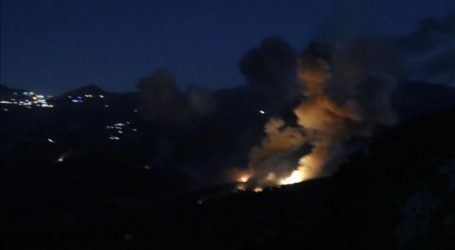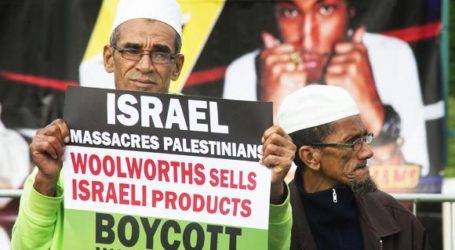STRIKE HITS YEMEN AHEAD OF NATIONAL DIALOGUE
Sana’a, 8 Jumadil Awwal 1434/19 March 2013 (MINA) – Thousands of supporters of separatists in southern Yemen have rallied to protest against a national dialogue starting on Monday (18/3), demanding that their region be allowed to secede from the north.
Protesters carrying placards saying “No dialogue under occupation!, Independence is our choice!” demonstrated in the port city of Aden Sunday evening, waving flags of the formerly independent South Yemen which was united with the north in 1990, according to Aljazeera report monitored by Mi’raj News Agency (MINA).
“We are here by the thousands to reject the dialogue as it is an issue of northerners and those southerners who are involved in it do not represent the people,” AFP reported quoting Khaled Junaidi, an activist. Yemeni authorities deployed police to protect government buildings and foreign consulates in the city.
Activists said protesters also gathered in Moukalla, capital of the southeast Shabwa province. The protests came after Aden was paralysed by a six-hour general strike staged by hardliners from the Southern Movement who are boycotting the UN-backed dialogue that is to begin in the capital Sanaa on Monday and will last for six months.
More than 500 Yemeni delegates are expected to attend that meeting. Qassem Askar, a leader of a hardline faction in the Southern Movement said his group was mobilising the street to “express our rejection” of the talks. “Several people have not been informed that they were appointed to represent southerners in the talks and some have withdrawn. Others representing southerners are of northern origins,” he told AFP.
Anti-unity songs blared from loudspeakers in Aden as dozens of cars patrolled the city urging residents to participate in the rally on Sunday. Several anti-dialogue slogans and calls for the secession of the south were smeared on walls of many buildings, in addition to the displaying of flags of the former South Yemen in parts of the city.
The dialogue aims to draft a new constitution and prepare for general elections in February 2014 after a two-year transition led by President Abdrabuh Mansur Hadi. The dialogue should take place under a deal that eased former strongman Ali Abdullah Saleh out of office after an 11-month uprising against his 33-year rule. Most factions have finally agreed to take part after months of negotiations and under UN pressure.
The Southern Movement, headed by Ali Salem Al-Baid, South Yemen’s former president, seeks independence or at least autonomy for the south. “We refuse to participate in the dialogue which insults and betrays the programme of the southern revolt,” said the head of the Southern Movement Council in Mualla, Hussein Zein.
After North and South Yemen united in 1990, the south broke away in 1994. The secession triggered a short-lived civil war that ended with the region being overrun by northern troops. In 2007, the Southern Movement emerged as a social protest movement of retired officials and soldiers. But it has gradually grown more radical in its demands.
In addition to Baid’s faction, the dialogue is boycotted by the head of the Southern Movement’s Supreme Council Hassan Baoum, the most powerful faction of the alliance. The National Council for the People of the South led by Haidar Abu Bakr al-Attas, who lives in exile in the United Arab Emirates, and the National Democratic Coalition led by Khaled Baharun and Abdulrahman al-Jisri, are also boycotting the talks.
In the far northern highlands, the Houthis – a movement seeking to revive Yemen’s Zaidi Shia tradition – fought six wars against Saleh’s troops between 2004 and 2010, and are spreading their influence from their base in Saada to neighbouring provinces.
The most powerful units in the army still appear to be split between loyalists of Saleh and his one-time ally and later rival, General Ali Mohssen. Saleh himself is widely seen to be playing an obstructive role behind the scenes – so much so that he was singled out for a warning in a recent statement from the UN Security Council.
In recent months, rebels have seized additional territory and now control large swaths of northern and eastern Syria. President Bashar Assad and his loyalists have successfully defended regime strongholds, including the capital, Damascus. Opposition media reported on Sunday that the Free Syrian Army was in control of Syrian officers’ positions in Dhab’a, a suburb in the central province Homs. They also surrounded the airport in Homs. (T/P011/E1)
Mi’raj News Agency (MINA)







